The multimeter is a versatile tool used in many household, automotive, and industrial applications. The most commonly used multimeter is for checking current, voltage, and resistance. Electrical projects can be made safer and more successful if your measurements are accurate. The True RMS (Root Mean Square) concept plays a role here. Before purchasing a multimeter, most people ask themselves: do I need true RMS multimeter? Check your needs and understand true RMS multimeters before Purchasing if you need one.
Short Guide
“When working with non-linear or complex waveforms, such as those produced by diodes or transistors, a true RMS multimeter is essential. An RMS multimeter can give accurate measurements if you are working with voltage or current fluctuating devices, especially in semiconductor circuits. This is essential for troubleshooting and ensuring safety.”
What Is True RMS Multimeter?
A true RMS multimeter, or root mean square multimeter, is an essential electrical measuring tool for measuring AC (alternating current) and DC (direct current) electrical values. In contrast to average-responding multimeters, which assume a sinusoidal wave shape, they calculate the actual RMS value of a waveform, making them suitable for non-sinusoidal and distorted signals.
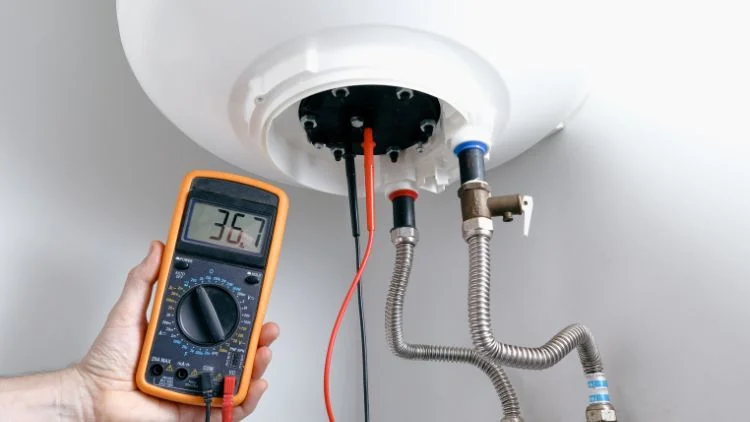
In spite of the complexity of waveforms, this ensures precise measurements of voltage, current, resistance, and frequency. As they provide accurate readings in real-world situations, true RMS meters are indispensable in troubleshooting electrical circuits, making them an ideal choice for professionals across a wide range of fields, including electronics and electrical engineering, industrial maintenance, and HVAC.
Take a look at Fluke 115 True Rms Multimeter Review
Why do I Need True RMS Multimeter?
It provides accurate measurements across a wide range of electrical signals. This tool ensures precision regardless of waveform complexity, whether dealing with standard sinusoidal waveforms or intricate, non-standard variations. In certain situations, it is essential. A wide range of sinusoidal and non-sinusoidal AC voltages and currents can be measured accurately, ensuring accurate readings for complex waveforms. When troubleshooting electronics, non-True RMS meters can give inaccurate results.
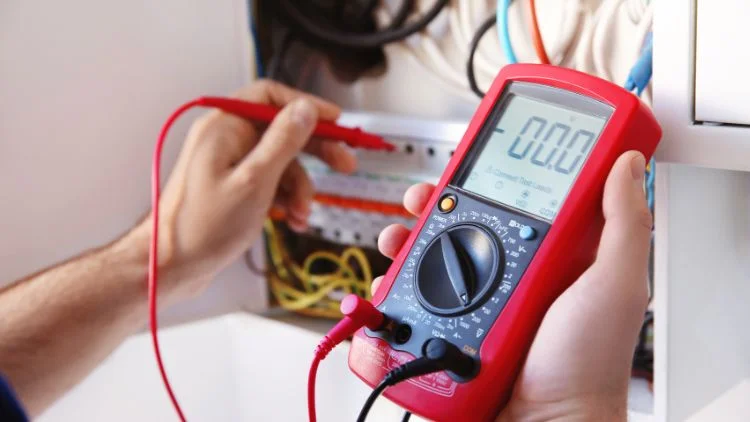
You should invest in a True RMS multimeter if you work with household electrical systems or electronic circuits. With dimmer switches, LED lighting, or motor-driven appliances, it ensures accurate measurements. However, a standard multimeter may be sufficient for basic tasks such as measuring car battery voltage. Determine if it is necessary based on your specific needs and types of electrical signals.
When Do You Need a True RMS Multimeter?
When it comes to choosing it, the nature of your electrical work is crucial. Here are some situations where a it is invaluable:
1-Home Electrical Work and DIY Projects:
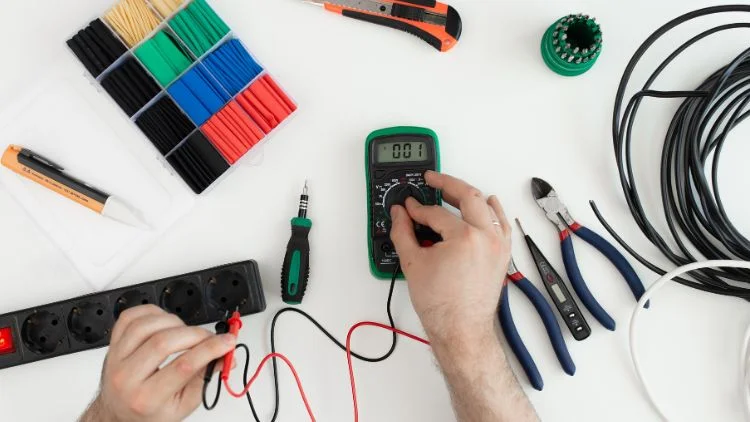
The basic multimeter might suffice for everyday household tasks, such as fixing a flickering light or installing new outlets. A True RMS multimeter is essential when dealing with modern appliances and electronic devices that use non-sinusoidal waveforms. With it, you will be able to accurately measure more complex household systems, enhancing the quality of your work as well as your safety.
2-Industrial and Professional Applications:
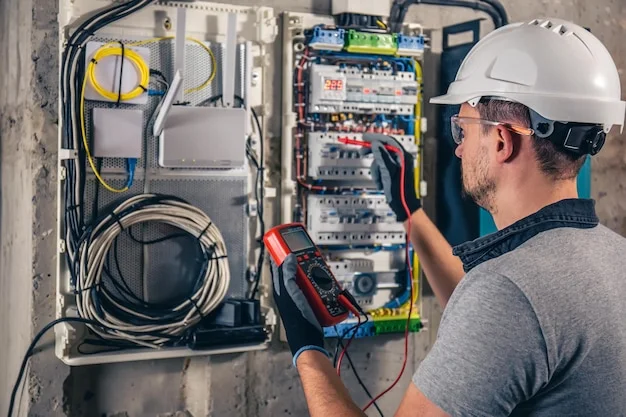
Professional and industrial sectors rely on True RMS multimeters for precision and reliability. Electrical signals can be distorted in these applications due to complex machinery, motor control systems, and power distribution systems. Using it ensures accurate measurements, preventing costly downtime, equipment damage, and safety risks.
3-Electronic Troubleshooting and Repairs:
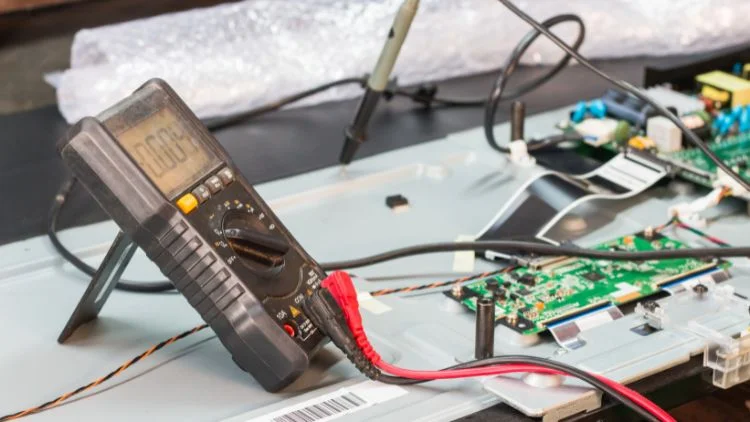
A True RMS multimeter is essential for electronics enthusiasts and professionals working with audio equipment, power supplies, or variable frequency drives (VFDs). Since many electronic circuits produce non-sinusoidal waveforms, accurate measurements are crucial for diagnosing and repairing problems. You’ll be better equipped to pinpoint problems and restore equipment to peak performance with it.
4-Use Cases in HVAC, Automotive, and Renewable Energy Sectors:
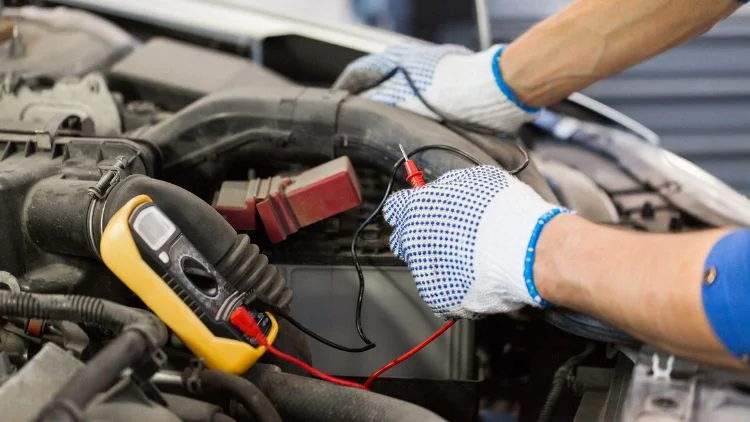
HVAC, automotive diagnostics, and renewable energy systems require precise measurements to maintain their performance and efficiency. These are areas where true RMS multimeters excel. Among their duties are troubleshooting heating and cooling systems, diagnosing vehicle electrical issues, and assessing the efficiency of renewable energy sources such as solar panels and wind turbines. It is difficult to ensure the systems’ reliability and safety without True RMS capabilities.
Features to Look for in a True RMS Multimeter
When considering a True RMS multimeter, several key features are essential to ensure you get the most out of this versatile tool. Here are the critical points to keep in mind:
1-Display Type and Resolution:
The type of display and its resolution are crucial. Look for a multimeter with a clear, backlit LCD screen for easy readings in various lighting conditions. Higher resolution displays provide more precise measurements, which is particularly important when dealing with intricate electronics or small voltage variations.
2-Auto-Ranging vs. Manual-Ranging:
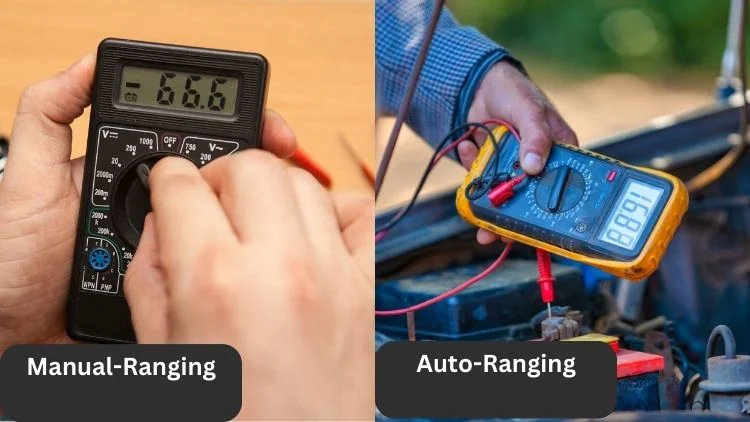
Many modern True RMS multimeters offer auto-ranging capabilities, which can simplify the measurement process for beginners. With auto-ranging, the multimeter selects the appropriate measurement range automatically. However, some professionals prefer manual-ranging for more control, especially in specific applications where a fixed range is needed.
3-Safety Features and Certifications:
Safety should always be a top priority when working with electrical systems. Look for it with features like overload protection, built-in fuses, and robust construction. It’s also essential to choose a multimeter that complies with safety standards, such as those set by organizations like UL (Underwriters Laboratories) or CAT (Category) ratings that indicate the device’s suitability for specific environments.
4-Data Logging and Connectivity Options:
In today’s digital age, the ability to record and analyze measurements is highly valuable. They come equipped with data logging capabilities, allowing you to save and review measurements over time. Additionally, multimeters with connectivity options, such as USB or Bluetooth, can streamline data transfer to a computer for in-depth analysis and reporting.
Conclusion
In the end, whether do I need true rms multimeter or not depends on your needs. If you want to test small electrical appliances such as live wires, switches, sockets, and batteries, a digital multimeter will suffice. However, if you are testing wide ranges of current or voltage, a true RMS multimeter is required. They are mostly used in HVAC testing, industrial testing, and when accuracy is paramount. It is recommended that you take a true RMS multimeter since it has many features as explained in this article. Furthermore, it gives you accurate readings compared to other multimeters.
